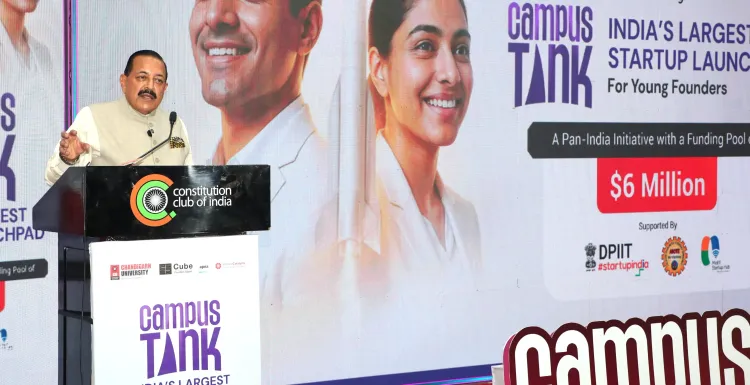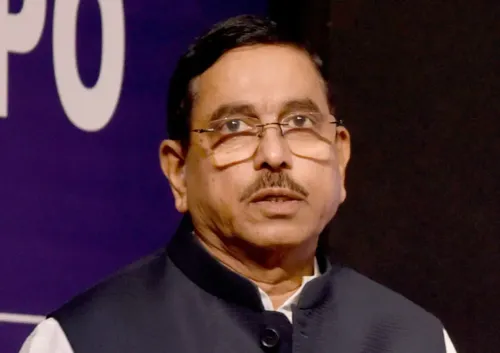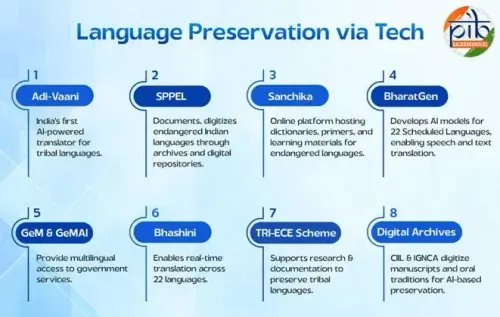How Does India’s Future Growth Depend on a ‘Startup-Linked Economy’?

Synopsis
Key Takeaways
- Startup-linked economy is vital for India's growth.
- Industry collaboration enhances startup sustainability.
- Women are leading a significant portion of startups.
- India's innovation ranking has significantly improved.
- Smaller towns are contributing to the startup ecosystem.
New Delhi, Sep 7 (NationPress) The future growth of India is set to increasingly rely on developing a 'startup-linked economy' that is firmly based on robust industry partnerships, as highlighted by Union Minister Dr. Jitendra Singh.
Dr. Singh remarked that the government has established a supportive ecosystem to foster innovation and entrepreneurship; however, the ongoing success of startups necessitates early and significant collaboration with the industry.
During the launch of the 'Campus Tank' initiative at Chandigarh University, he stated, “This project is primarily aimed at enhancing industry connections. The introduction of the Chandigarh University Campus Tank will significantly advance the startup-linked economy through stronger industry ties. We have placed a high priority on industry involvement. This represents startup funding,” he explained.
He further asserted that keeping industry at the forefront is crucial for sustainability.
“Thus, we are advocating for an industry-linked startup initiative and a startup-linked economy. This expression is quite effective,” he emphasized, adding that while innovative ideas and research originate from academic institutions, their lasting success is contingent upon structured partnerships with the industry that provide financial support, market exposure, and scalability,” the minister elaborated.
He elaborated that while India's startup narrative thus far has been fueled by enthusiasm and innovation, the upcoming phase must prioritize the establishment of sustainable businesses capable of thriving in competitive environments.
He provided examples from fields such as biotechnology, agriculture, and space, where government backing and industry collaboration have already achieved tangible results. Industry involvement, he noted, not only fortifies startups but also guarantees that investments yield productive outcomes and create job opportunities.
Dr. Singh stressed that India's startup ecosystem is expanding beyond metropolitan areas and tech hubs, with smaller cities and various sectors increasingly playing a role in new enterprises. This shift reflects an aspirational India eager to leverage innovation for growth.
He also pointed to India's rising global position in innovation, indicating that the nation has ascended from rank 81 to 39 in the Global Innovation Index within less than a decade.
He highlighted that nearly 60 percent of India's registered startups are led by women, showcasing a transformation where women are not merely participants but leaders of significant projects.
By citing instances, he mentioned that women scientists are leading national initiatives like Aditya L1 and Chandrayaan-3, underscoring the inclusivity of India's scientific and startup ecosystem. The Minister further noted that India's advancements are also evident in patent applications, with a majority of recent patents being filed by resident Indian innovators, reversing previous trends.









